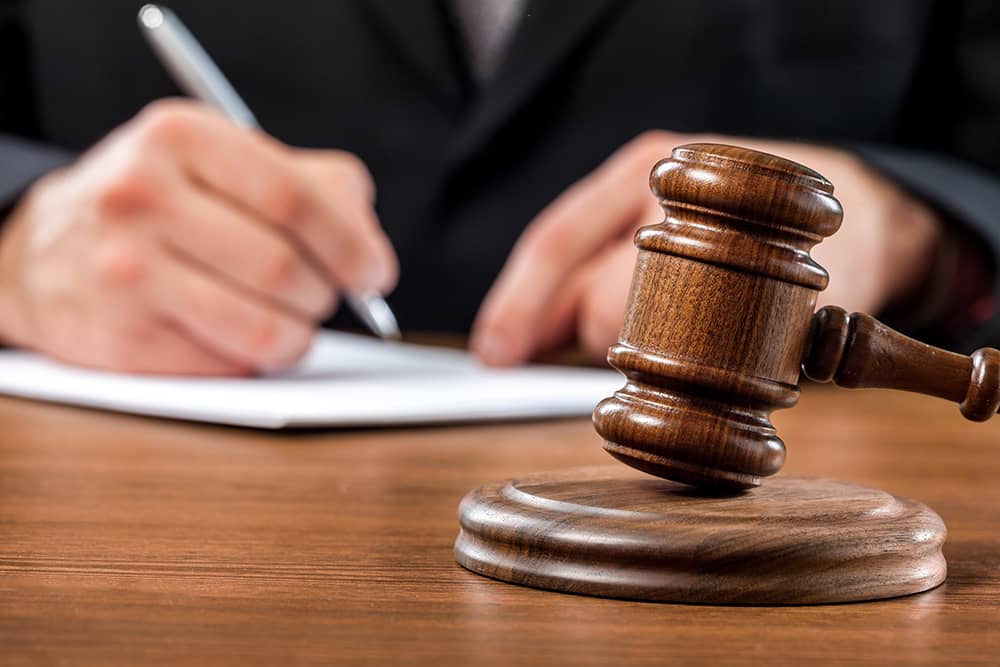Felony Vs. Misdemeanor: Understanding the Differences in Criminal Offenses

Have you been charged with or convicted of a crime?
Either way, understanding the difference between felonies and misdemeanors is crucial to navigating the legal system and making informed decisions.
While both terms are commonly used in the realm of criminal law, few people grasp how different these classifications are and how they can impact your life.
In this blog, we will discuss the difference between a felony and misdemeanor, shedding light on their definitions, penalties, and long-term implications.
Whether you are personally involved in a legal case or looking to expunge a criminal charge, our defense attorneys can provide you with the guidance you need.
What are Felony Offenses?
When it comes to felony offenses, the consequences can be severe and life-altering. There are several common felony charges that individuals may face, including violent crimes like murder, rape, robbery, burglary, and drug trafficking. These offenses are considered more serious than misdemeanors due to the potential harm they can cause to individuals and society as a whole.
The consequences of felony convictions are significant and can have long-lasting effects on an individual’s future prospects.
Consequences of a Felony Conviction
Individuals convicted of felonies may face lengthy prison sentences ranging from several years to life in prison. Additionally, fines for felony convictions can be substantial and have long-lasting financial implications.
Some of the collateral consequences of a felony include:
- Loss of civil rights: A felony conviction can result in the loss of certain civil rights, such as the right to vote, hold public office, serve on a jury, or possess firearms.
- Employment difficulties: Felony convictions can make it challenging to find employment, as many employers conduct background checks and may be hesitant to hire individuals with a criminal record.
- Housing limitations: Some landlords and rental agencies may deny housing applications from those with felony convictions, making it harder to find suitable accommodation.
- Immigration consequences: Non-U.S. citizens convicted of a felony may face deportation, denial of naturalization, or other immigration consequences.
- Professional licensing restrictions: Certain professions, such as law, healthcare, teaching, or finance, may have licensing restrictions or regulations that prevent individuals with felony convictions from obtaining or maintaining these licenses.
- Harsher penalties for future offenses: In many jurisdictions, individuals with prior felony convictions may face more severe penalties if they are convicted of subsequent offenses.
In light of the potential consequences that come with a felony conviction, it becomes evident why seeking legal representation is crucial. Our experienced criminal defense attorneys at Botnick Law Firm can work to mitigate the impact of a conviction, striving for reduced sentences, minimized fines, or even acquittal.
For those already convicted, pursuing expungement of your record can offer a chance to rebuild your life by erasing or sealing past convictions. Whether before or after conviction, the guidance of legal professionals proves invaluable in navigating the intricate landscape of felony repercussions.
What are Misdemeanor Offenses?
Misdemeanor offenses are generally considered less serious than felony offenses, but they can still have significant consequences.
Some common types of misdemeanor offenses include petty theft, disorderly conduct, and some traffic violations, like a first-time DUI or OVI charge. While these charges are less severe than felony offenses, they are nothing to bat an eye at.
Consequences of a Misdemeanor Conviction
Punishments for less serious crimes, like misdemeanors, may not be as severe but can still have significant consequences on a person’s life. While felonies often result in lengthy prison sentences, individuals convicted of misdemeanors typically face shorter jail time or probation. However, this doesn’t mean that the impact of misdemeanors should be underestimated.
In Ohio, misdemeanors, depending on the degree, are punishable by up to 180 days in jail, a fine of up to $1,000, and a blemish on your criminal record that could limit your future opportunities.
Many employers conduct background checks, and a misdemeanor conviction can make it more difficult for someone to secure a job. This is especially true for positions that require a certain level of trust or involve working with vulnerable populations.
Therefore, even though misdemeanors generally carry lighter punishments than felonies, they can still have lasting repercussions on an individual’s ability to find employment and move forward in their career.
How Do I Know If I Have a Misdemeanor or Felony?
When you’re charged with a crime, you’ll be informed of the charges against you at your arraignment. Your arraignment is the initial court hearing where you are formally presented with the charges against you. At this stage, the judge will inform you about the nature of the charges, whether they are classified as felonies or misdemeanors.
If you have already been convicted of a crime and wondering if your charges were felonies or misdemeanors, you can review your criminal record. Criminal records are typically maintained by law enforcement agencies and courts, and they document an individual’s criminal history, including the nature of the offenses committed and the corresponding charges.
To access your criminal record, you can contact your local law enforcement agency or the court that handled your case. They will provide you with the necessary information to review your record and determine the classification of the offense, whether it is a felony or misdemeanor.
Navigating the Criminal Justice System
Whether you find yourself facing serious felony charges or dealing with a misdemeanor offense, the Botnick Law Firm is here to guide you through every step of the legal process.
Our experienced team of criminal defense attorneys has a deep understanding of the law and a proven track record of successfully representing clients in a wide range of criminal cases. We believe that everyone deserves a fair and just defense, regardless of the severity of the charges they face.
If you or a loved one are currently dealing with a criminal offense, don’t wait to seek legal representation. Contact us today to schedule a consultation and learn more about how we can help you safeguard your future.



